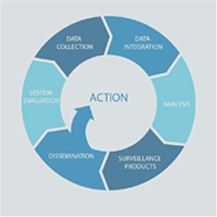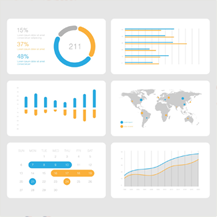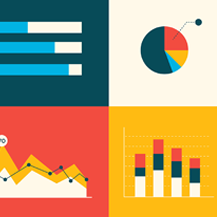 Empowering public health through research excellence:
The Office of Health Surveillance and Research advances data-driven public health through research, data analysis and data interpretation to support MSDH's wide range of programs.
Empowering public health through research excellence:
The Office of Health Surveillance and Research advances data-driven public health through research, data analysis and data interpretation to support MSDH's wide range of programs.
Data is Key
Data enables evidence-based decision-making in public health, facilitates the monitoring and evaluation of health outcomes, and empowers policymakers to design effective interventions that address population health needs. Data plays a crucial role in disease surveillance, outbreak detection and identifying health disparities, ultimately leading to improved public health planning and the best use of public health resources.
Our Data Products

State Health Reports
These reports provide annual/biennial data summaries, present analyses of health topics, or present new information on methods or measurement issues. Examples include the yearly Cancer Fact Sheets.

Fact Sheets and Data Briefs
Data Briefs are statistical publications that provide information about current public health topics. Each report takes a complex data subject and summarizes it in text and graphics that provide readers with easily comprehensible information in a compact publication or web page. Examples include our fact sheets on cancers.

Data Dashboards
A data dashboard is a tool used to track, analyze and display ongoing data. By visually presenting a variety of related data on an developing event or situation, a dashboard helps to quickly grasp its overall state.
Our Data Tools

Health Surveillance
Public health surveillance is “the ongoing, systematic collection, analysis, and interpretation of health-related data essential to planning, implementation, and evaluation of public health practice” (CDC). Surveillance is the foundation of data-driven public health.

Data Visualizations
Charts, plots, infographics and even animations help give shape to data to communicate complex data relationships. By exposing patterns and essential features of a large number of data points, insights are easier to draw, and overviews of data behavior are easier to grasp.

Geospatial Mapping
A form of data visualization, geospatial mapping customizes maps suited to specific needs. Mapping provides geographical context — global, state or local — to data to better enable its interpretation.
Programs We Support
All these MSDH health programs and many more are supported by OHSR's data services.
- Diabetes Prevention
- Comprehensive Cancer Control
- Heart Disease and Stroke Prevention
- Delta Health Collaborative
- Oral Health
- Healthy Aging
- Community Health Workers
- Tobacco Prevention
Who We Are

Epidemiologists and Health Data Scientists are public health professionals who specialize in studying patterns, causes and effects of diseases in populations. They apply scientific methods to investigate the occurrence and distribution of diseases, identify risk factors, and develop strategies for disease prevention and control. We analyze data, conduct research studies, and collaborate with other public health experts to understand the impact of diseases on communities and to inform public health interventions.
Office of Health Surveillance and Research
Office of Preventive Health and Health Equity
Mississippi State Department of Health
715 S. Pear Orchard, Plaza 1 Suite 102
Ridgeland, MS 39157
E-mail: ohsr@msdoh.onmicrosoft.com
Phone: 601‑206‑1010

